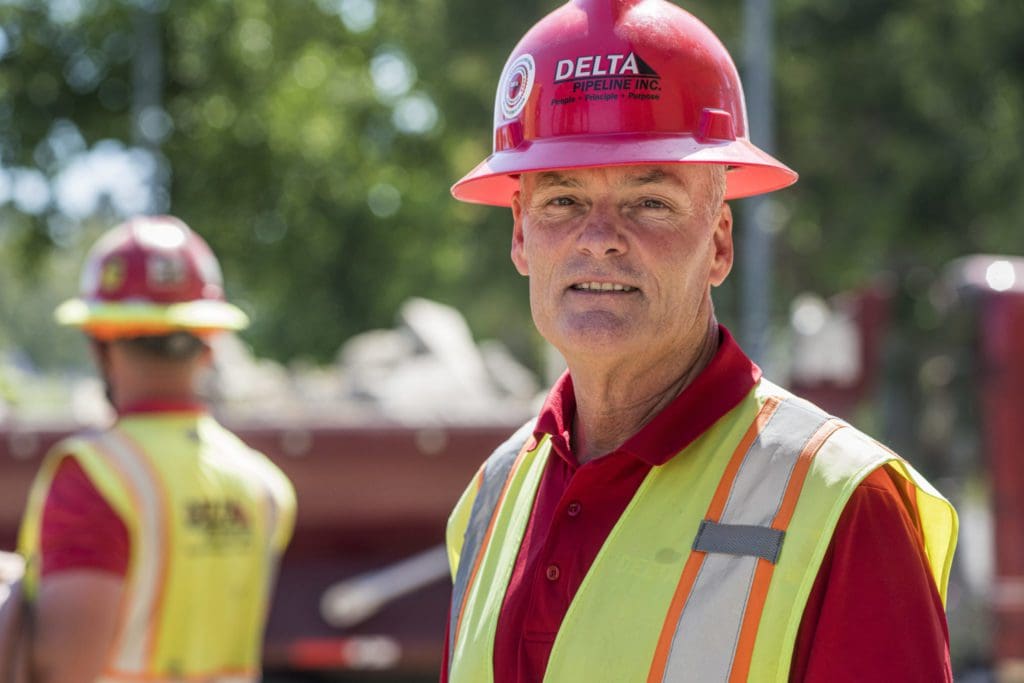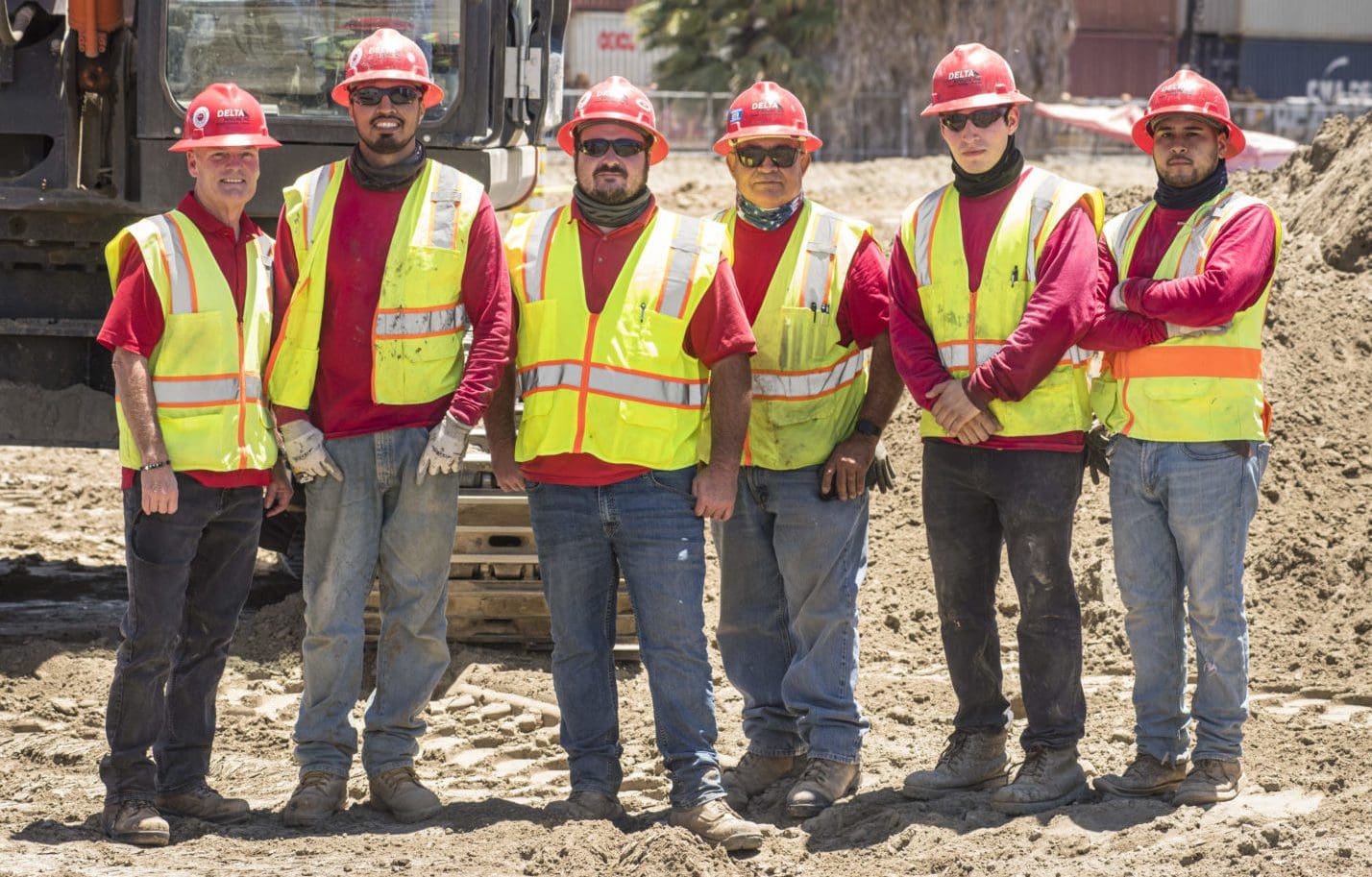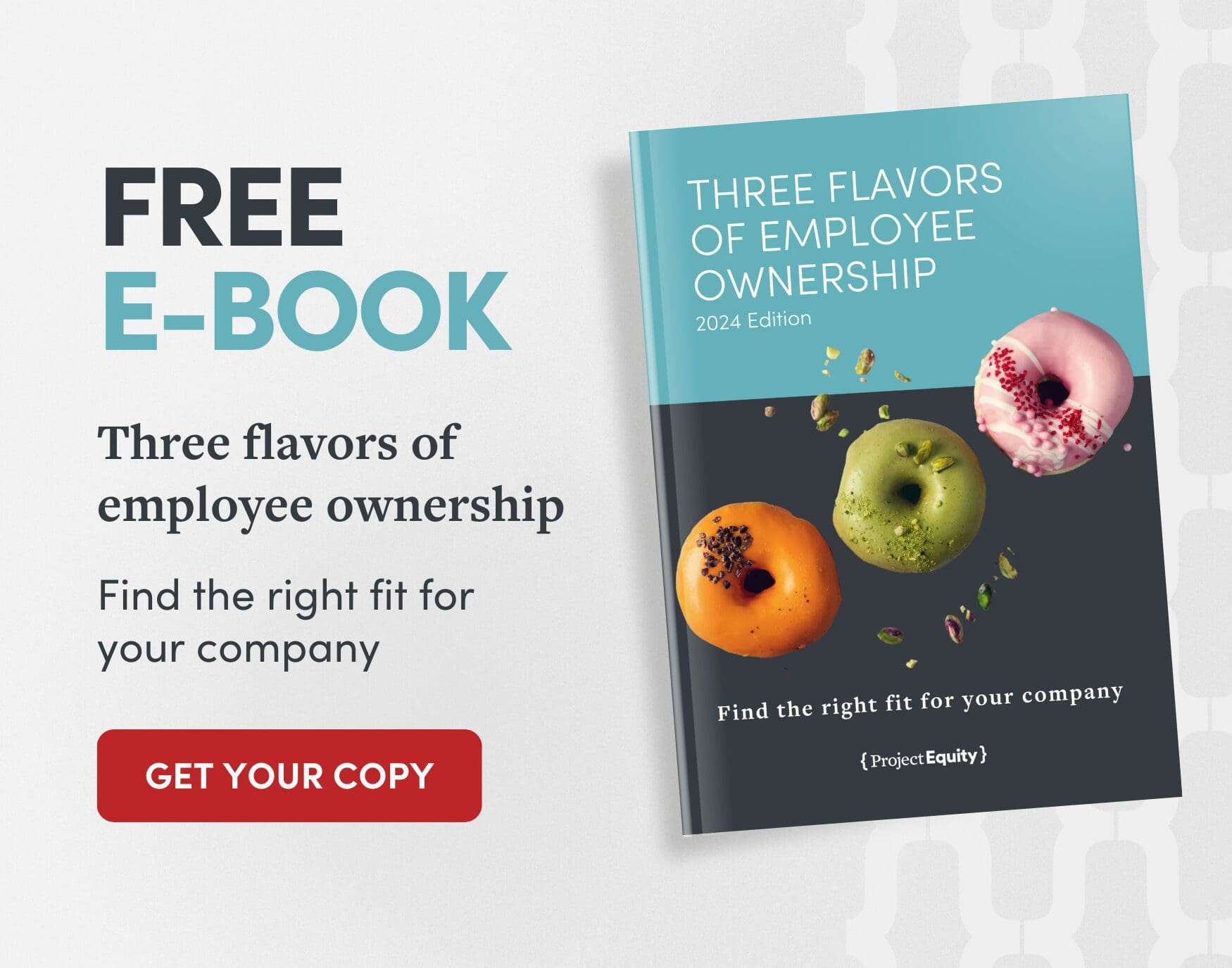Delta Pipeline, Inc.
- Long Beach, CA
July 2020—Project Equity had a chance to connect with Craig Danley, President and CEO of Delta Pipeline, Inc., who knows how businesses can be affected by hard times. In 1989, when a recession caused a lot of companies to go out of business, the company Craig had worked for since he was 20-years-old became one of them.
He didn’t work for just any company, though, Craig worked for a company his grandfather ran, and he credits his grandfather with teaching him everything he knows about the construction business and how to prioritize people over profit.
Craig, and his business partner Richard Vance II, opened a new venture in 1991, building on Craig’s grandfather’s legacy: Delta Pipeline. They are a well-respected Long Beach, California utility business that is nearing their 30-year anniversary. Working in both the public and private sectors, their projects include construction and redevelopment of schools, medical buildings, retail, office and industrial space.
In 2017, they proudly became an Employee Stock Ownership Plan (ESOP) and became 100% employee-owned. They currently employ 68 team members. Delta Pipeline is a company with many success stories, including entry-level Pipelayer Helpers joining the team with no experience becoming fully-skilled Pipelayers, Foremen, Superintendents, and even Project Engineers.
As their website states, “If it’s pipe related, we can handle it. We cover every step of a project including pre-construction, planning, scheduling, budgeting and value engineering to ensure that our partnership develops into a mutually profitable, long-term relationship.”
A business built with an employee-first attitude
Since the beginning, Craig and Richard wanted to provide opportunities for their team members that were more than just a paycheck.
They provide profit sharing and leadership opportunities, created a training program called Delta Pipeline University, and involved all team members in quarterly recognition dinners. So, it seemed a natural fit that in 2017, Delta Pipeline became employee-owned through an ESOP, living their mission of People/ Principle/ Purpose. When you join Delta Pipeline, you become an employee-owner with a personal stake and shared responsibility in the success of the company.
A conversation with Craig Danley
We spoke with Craig about Delta Pipeline and what it’s like to be an employee-owned business, here’s what he had to say:

How do you think your company is different because you are employee-owned?
Our culture really is about how to create ownership, how to create a culture of organization and community that revolves around relationships and people, and how to inspire people to perform not for themselves but to perform for the organization as a whole.
We believe this culture produces good outcomes for the city, the county and the state. It’s very intentional, and it’s a part of our soul. It’s part of our conversations. It’s in every decision we make. It’s not about me, it’s about we. I think that’s what really sets us apart.
Can you tell us what it was like for you to make the shift from owner to employee-owner?
It’s a shift for sure. It’s hard. I’m the oldest of five boys in a family of nine children. I grew up with the attitude that I’m the head coach, the owner, the boss. I’ve always been the team lead on whatever team I’m on. It doesn’t really matter what environment I’m in. It’s a leadership mindset and how do you transfer that over and help people learn how to have that mindset.
What I struggle with the most is when someone doesn’t want to take the ball and run with it. They want the benefits of ownership, and they don’t really know how to be an owner; they’re not sure they want to commit to that level of relationship with your organization.
Delta Pipeline is more than a job to me – this company is my life. I want others to have that same feeling.
How is Delta Pipeline adapting in the COVID-19 environment?
Because we’ve been named an essential business, we’re still working. It’s been difficult adjusting to the new norm, and we’ve had a couple of close calls, but we’re all still surviving. The unknown has been frustrating, and we’ve had to adapt to doing business on Zoom or conference calls.
We created our phasing based on the direction from our county; starting with staying six feet apart and wearing a mask. We have enough square footage to make those adjustments with most of our team members.
We asked those over 60 to work from home. A couple others could also be productive at home which allowed us to create more than six to ten feet separation.
In phase two, we began bringing back office staff slowly and minimized everyone’s exposure by placing Plexiglass between workstations, taking temperatures before entering the office, and adding an air filtration system.
Even though you are an essential business, was there a time when you didn’t have enough work for all of your employees?
Not more than usual. Sometimes we have individuals in between jobs or moving from job to job. Our approach is to not let anybody sit more than a day.
We’ve been fortunate that jobs haven’t been stalled or postponed. We’ve not had to lay off anybody, and everyone has stayed on task.
How would you describe the benefits of being employee-owned?
The major benefit of employee ownership for us is that we are changing the hierarchy. We believe that the leaders are supposed to become servant leaders and teach people to be leaders. It really is a servant leadership mentality. And it’s shared capitalism. You can have the opportunity to be an owner and help to add value to the company – not just the CEO. I can’t do what the pipelayer can do, and the pipelayer can’t do what the CEO can do. We need each other.
We have to continue to appreciate, partner, and teach each other. Our employee shareholders are trying to teach me and I’m not always a fast learner. We’re having fun trying to engage people and to help people learn, grow, and make a difference. If we show up with the same commitment, same desire, same tenacity, we all deserve a piece of that ownership.
“We don’t see this as a job. We see it as a career, and we see everyone as a partner… on day one.”
Tell us about the experience of employee-owners at Delta Pipeline.
When a team member comes aboard, they go through orientation and must be employed for a year to become eligible to start their ESOP vesting period. You become 100% vested after six years. No matter what their position is, I have a conversation with them regarding what an ESOP is, what we believe in, why we do it, what our culture is, and how we expect our employee-owners to act. We discuss where we’re going as an organization and we need their help. We don’t see this as a job. We see it as a career, and we see everyone as a partner… on day one.
We embraced the ownership concept 20 years ago by sharing profits. We share 10% of our gross margins with our employee-owners. We’ve always practiced profit sharing and been serious about each individual‘s success and adamant about our mission and purpose. Employee ownership is about empowerment.
What advice would you give to businesses considering transitioning to employee ownership?
Know upfront that everyone doesn’t want to be an owner. You can’t force them to be – some people just want a job. And that’s gotta be okay. You want everyone to experience what it means to be an owner of their life and an owner of their company. What it means to be an owner in their community. What it means to make a difference. To engage. To learn. To grow. It’s a journey and it’s going to take time.
You have to get a majority of the people to participate and understand they make a difference in everything they do. Their every single move makes a difference. There’s an outcome for every choice and people need to understand that.
The most important thing to do — and it’s not without its challenges — is to turn an employee mindset into an owner mindset. We have to ask people: “Is ownership what you really want?” Our ESOP is not just a retirement program, it’s truly a benefit. We all have an investment to make together. It’s about putting your name on the list with the people who actually created it, made it and grew it.
“Employee ownership is about empowerment.”
Do you think, as an ESOP construction company, that you have a competitive advantage over a non-employee-owned business?
I would say we have a bit of a competitive advantage. We’re building a culture we really want from the ground up. We sold our company to the team members at a major discount. We took 10% off the selling price and felt we needed to give it back to the employee-owners. The share price increased instantly on day one.
There are tax advantages for ESOPS, and that gives you a competitive edge. [As an S-Corp ESOP], we pay state tax, but no federal tax. That’s definitely a competitive edge for whatever industry you’re in.
We believe in it. We believe that employee-ownership is the answer to a lot of woes out there. We believe that employee ownership is the answer to our country’s issues.
“We believe that employee ownership is the answer to our country’s issues.”
Any additional advice for companies considering becoming an ESOP?
Here’s the advice I would give: First, the more you communicate, the more conversations you have, the more that you plan upfront, the better off you’re going to be. We communicate an ESOP message every Friday afternoon to every single employee-owner. We talk about our core values every single day. The following week, all department heads discuss the ESOP message with their respective department/crews. We talk about our core values every single day. We remind people what our mission is – not to create more value so we make money, but to create more value to build a platform that benefits everyone, their families, our city, and our county. The ESOP is about the people. The more you invest in people, the more likely you will succeed financially, spiritually, and socially.
Second, it is very important a business owner needs to work with the right employee ownership service provider to help them with the transition. When Delta Pipeline made the decision to turn our company into an ESOP, we decided to use the services of Ambrose Advisors for the transaction. The Ambrose team helped us understand the challenges as well as the advantages and took us through an in-depth interview process to challenge our commitment. In post-transaction, we continue to use Ambrose’s services for ESOP related support and management.

Ownership story details
Transitioned
2017
Employees
68
Industry
Type of EO
Topic
Not applicable


